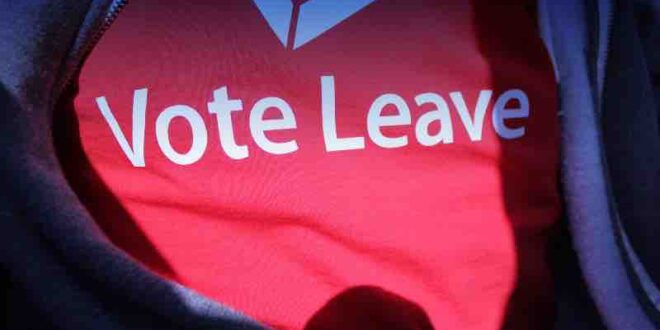PSA Part’s Sales Director, Nick Walsh looks at how Brexit is impacting cross European border trade for the tech channel and how companies can look to address these challenges.
Prior to finalising a deal, or Trade and Cooperation Agreement to give it its official title, there was a great deal of uncertainty and a lack of clear information for a lot of organisations directly impacted by Brexit. This; coupled with the late timing of the deal left many businesses awaiting answers and guidance on what they needed to do with only a matter of days to make those changes once the deal was confirmed.
Whilst an earlier deal would have allowed organisations to make provisions for incoming changes, the lack of clarity up until the 11th hour meant that for many businesses, detailed preparations weren’t being made for the new rules and procedures to follow. We’ve seen businesses of all different sizes caught unaware by details such as country of origin rules or correct EORI requirements.
Whilst the UK government made a concerted effort to get businesses set up with a UK EORI number, a considerable percentage of these businesses weren’t aware this only allowed them to export goods from the UK and didn’t allow them to take care of the importing of those goods into the EU and on to their customers. Despite headlines that a deal would “enable UK goods to be sold without tariffs, and without quotas in the EU market”, the realities of trade post-Brexit for UK resellers has been somewhat different. Because of the importance of country of origin rules, products exports to the EU must have originated from (not just shipped from) the UK to avoid potential tariffs. In practice, the vast majority of IT hardware typically originates from the Far East. As such, tariff exclusion for these products does not apply. As an industry we’re fortunate that most of our products are either zero rated or have relatively low tariffs when compared to industries such as food or automotive, but there is still a hidden cost for a surprising variety of products within the tech industry.
Even if goods have a zero rate of duty, a sale and shipment from the UK to the EU is no longer a simple movement from one member state to another. It is now an export and an import. Despite the physical proximity of the EU, the process can be as costly and as complex as shipping goods halfway around the world now.
Depending on the incoterms selected for your shipment, either you or your customer will be responsible for clearing customs in the destination country. Resellers that chose to take care of this for their EU customers via DDP (Delivered Duty Paid) shipments usually find themselves unable to reclaim the VAT element of the charges, the net effect of which is to increase the cost of the goods by between 19-24%, wiping out or severely reducing any margin in the sale. This cost is in addition to any other charges the courier may levy for providing the clearance service. The costs soon add up Those that selected DDU or DAP found customers unhappy at having to deal with the clearance themselves. Again, there is often a non-reclaimable fee from the courier for providing the clearance service.
These additional checks, combined with large numbers of shipments with incorrect or incomplete paperwork caused the cross border courier networks to grind to a halt in January with a number of the big names closing their services for days or weeks at a time. There are still backlogs and delays in most of the networks now.
Depending on the nature of the goods and transaction, your EU customers may be reluctant to assume the role of importer or consignee as this brings additional responsibilities for them as the party that places the goods in free circulation within the EU. Third party services are available to help you with this but again this comes at a cost and brings complexity to the deal.
Certification will also become a consideration in the near future. Whilst standards such as CE and it’s UK equivalent UKCA are currently identical and technically interchangeable, this may not last for long. The testing standards can and most likely will diverge at some point meaning UK products carrying only the UKCA mark, will no longer be able to be sold to customers in the EU. The opposite could apply for sourcing from suppliers in the EU. Vendors may choose to use this to control grey market product in the future. This is definitely one to watch.
Free ports, customs warehouses and temporary imports schemes can all potentially help resellers to prevent duplication of charges and tariffs on goods that need processing before delivering but are complex and expensive to establish and operate. Resellers don’t need the administrative and financial overheads of operating such schemes.
A handful of distributors, PSA included, took the decision to establish new divisions and logistics centres within the EU. This has helped to shield UK resellers from the cost and complexity of shipping goods cross border. Resellers who wish to benefit from such facilities may need to make an additional VAT registration depending on their current business setup but that’s a relatively quick and painless formality and companies such as ours can connect resellers with an advisor to guide them through that process if it is required.
It’s early days yet and it will be interesting to see how the major brands adapt to new regulation, how it shapes their distribution networks on both sides of the channel and what effect this will have for resellers.
Read the latest edition of PCR’s monthly magazine below:
Like this content? Sign up for the free PCR Daily Digest email service to get the latest tech news straight to your inbox. You can also follow PCR on Twitter and Facebook.
 PCR Tech and IT retail, distribution and vendor news
PCR Tech and IT retail, distribution and vendor news




